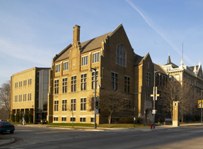Best of the Blogs
 This week: Those who don’t do, can’t teach? Also, an unconstitutional village ordinance on real estate for-sale signs may serve as a symbol of racial integration; the surprising stem cell research injunction; and is there a “private action” requirement in the Constitution?
This week: Those who don’t do, can’t teach? Also, an unconstitutional village ordinance on real estate for-sale signs may serve as a symbol of racial integration; the surprising stem cell research injunction; and is there a “private action” requirement in the Constitution?
First, it’s recruiting season for new law professors, which means that this week it was time for the perennial debate over the composition of law faculties. This time it was kicked off by Georgetown adjunct professor Brent Newton with his article, posted on SSRN, entitled “Preaching What They Don’t Practice: Why Law Faculties’ Preoccupation with Impractical Scholarship and Devaluation of Practical Competencies Obstruct Reform in the Legal Academy.” That was followed by comments from Stephen Bainbridge, Joe Hodnicki, Jonathan Adler, Rick Garnett, Kristen Holmquist, and Paul Horwitz. (I myself have weighed in on previous iterations of this debate.) One thing that struck me as missing from all of this commentary, much of it thoughtful, was any mention of the notion of law school degrees as positional goods.
Sarah Waldeck posted the fourth and final installment in her fascinating series on a Chicago suburb that has persisted in retaining, and apparently enforcing, a clearly unconstitutional village ordinance banning real estate for-sale signs. A taste:

